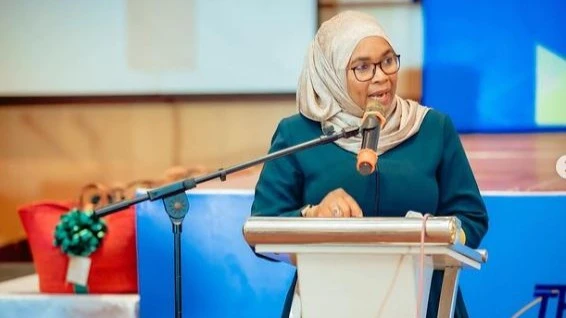Z’bar hints at opportunities in SADC insurance sectors

ZANZIBAR Chief Secretary Zena Ahmed Said has stressed the importance of engaging diverse stakeholders to achieve key objectives of the Southern Africa Development Community (SADC) particularly in the insurance sector.
She made this appeal at a vital committee meeting on the matter held here yesterday, since the meeting was focused on insurance issues, underlining that it is crucial for community members to discuss development opportunities available for all in this sector,
The government has meanwhile stated the crucial need for the regional committee of insurance, securities and non-banking financial authorities (CISNA) to support efforts to enhance the regulatory environment for businesses.
Ali Suleiman Ameir, the state minister in the Zanzibar President’s Office, made this appeal when opening of the 47th annual meeting of the CISNA committee under SADC held in Zanzibar, standing in for Dr Mwigulu Nchemba, the Union head of the Treasury.
The minister pointed at the importance of sharing information to prevent crime, protect stakeholders’ interests and strengthen the security of financial systems across the zone.
CISNA serves as an appropriate platform for exchanging experiences, expertise and strengthening cooperation in managing the sub-sectors of insurance, capital markets and non-banking financial services, he stated.
Like many regions globally; SADC has faced crises stemming from the Covid-19 pandemic, the Russia-Ukraine war, Middle East disputes and severe drought conditions in Southern Africa, he said.
“Our governments must intensify measures to mitigate these impacts and build economic resilience,” he stressed, affirming that the International Monetary Fund (IMF) projects positive economic growth for Sub-Saharan Africa.
It is expected that the average growth rate increases from 3.4 percent in 2023 to 3.8 percent this year while several countries are anticipated to exceed this average, he stated.
“To sustain this positive economic trend, collective action from stakeholders is essential. Crucial steps include implementing strategies to address climate change, advancing financial inclusion and supporting the development of small and innovative businesses,” the minister explained.
It is necessary to collaborate in tackling financial crimes such as money laundering and terrorism financing, already prioritised in the CISNA strategic agenda, he said, pointing out that climate-related disasters are becoming increasingly frequent and severe, tied to rising global temperatures.
“No continent or country is exempt from the impacts of climate change, with heat-waves, droughts, hurricanes and storms causing substantial damage worldwide," he specified.
Emmanuel Tutuba, the Bank of Tanzania (BoT) governor, noted that CISNA has a major role of harmonising regulations and supervisory frameworks across member countries. This would ensure compliance with international standards set by global regulatory bodies, he told the committee.
Kenneth Matomola, the Namibia Financial Institutions Supervisory Authority (NAMFISA) chief executive officer and CISNA chairman, said that the meeting's purpose was to discuss progress within the community.
It comprises various SADC member states, with the agenda also including discussions on climate change, a pressing challenge for member countries and the world at large, he said.
To achieve sustainable financial development, members would address financial regulations, based on the recognition that each country operates under a specific regulatory environment, he added.
Top Headlines
© 2024 IPPMEDIA.COM. ALL RIGHTS RESERVED






















